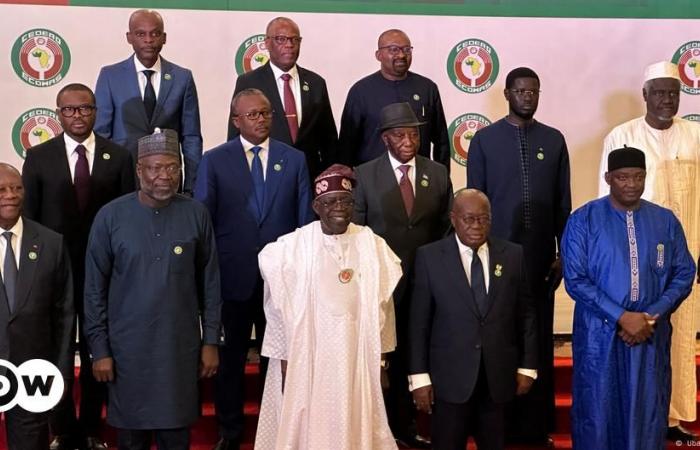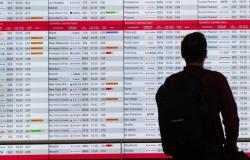The heads of state and government of the Economic Community of West African States (ECOWAS) met this Sunday (15.12) for an ordinary summit in Abuja. They took note of the decision of the three countries which form the alliance of Sahel States to leave the organization. ECOWAS has also decided to set up a “transition period” which will last until July 29, 2025. The objective is to “keep the doors of ECOWAS open to the three countries during this period”.
Here is the analysis by Babacar Ndiaye, political analyst and research director at the Wathi think tank.
The interview with Babacar Ndiaye
To play this audio please enable JavaScript, and consider upgrading to a web browser that supports HTML5 audio
Babacar Ndiaye : a solution, for the moment, would really be to put in place the broadest conditions so that this free movement of goods and people that we know within ECOWAS can continue with the AES countries. In a way, we will have to collaborate, because what is most important today are the populations of the two spaces.
DW: The countries forming the AES have therefore decided to guarantee the free movement of goods and people to ECOWAS nationals. Will the measure be reciprocal?
Babacar Ndiaye: I believe that this will be the solution that will perhaps impose itself at the beginning, in the immediate future. You know, we cannot decide overnight, especially the populations who live in neighboring areas, that we are no longer going to move freely. Some people talk about establishing a visa. That would really be very surprising compared to this long habit that the population of these countries has had in the ability to move from one state to another. Now the AES has opened a door by saying that its space will be a non-visa space. We will have to see the decision that ECOWAS will take. You should also know that we have ECOWAS organizations which are based in the AES countries. I take the example of the West African Health Organization (WAHO) whose headquarters is in Bobo-Dioulasso in Burkina Faso. So, obviously, there are implications, consequences in relation to this withdrawal.
DW: The three countries of the Confederation of Sahel States are not going to leave UEMOA. Won’t that complicate things?
Babacar Ndiaye: UEMOA is the sharing of the CFA franc. Obviously, this is not going to happen overnight. It’s much more difficult to leave the franc zone. From my point of view, if it is the desire of these three countries to leave UEMOA, this will obviously take much longer. Because there are a lot of implications. We will have to create a currency, to have a bank too. I believe that the conditions for leaving the franc zone take much longer.






